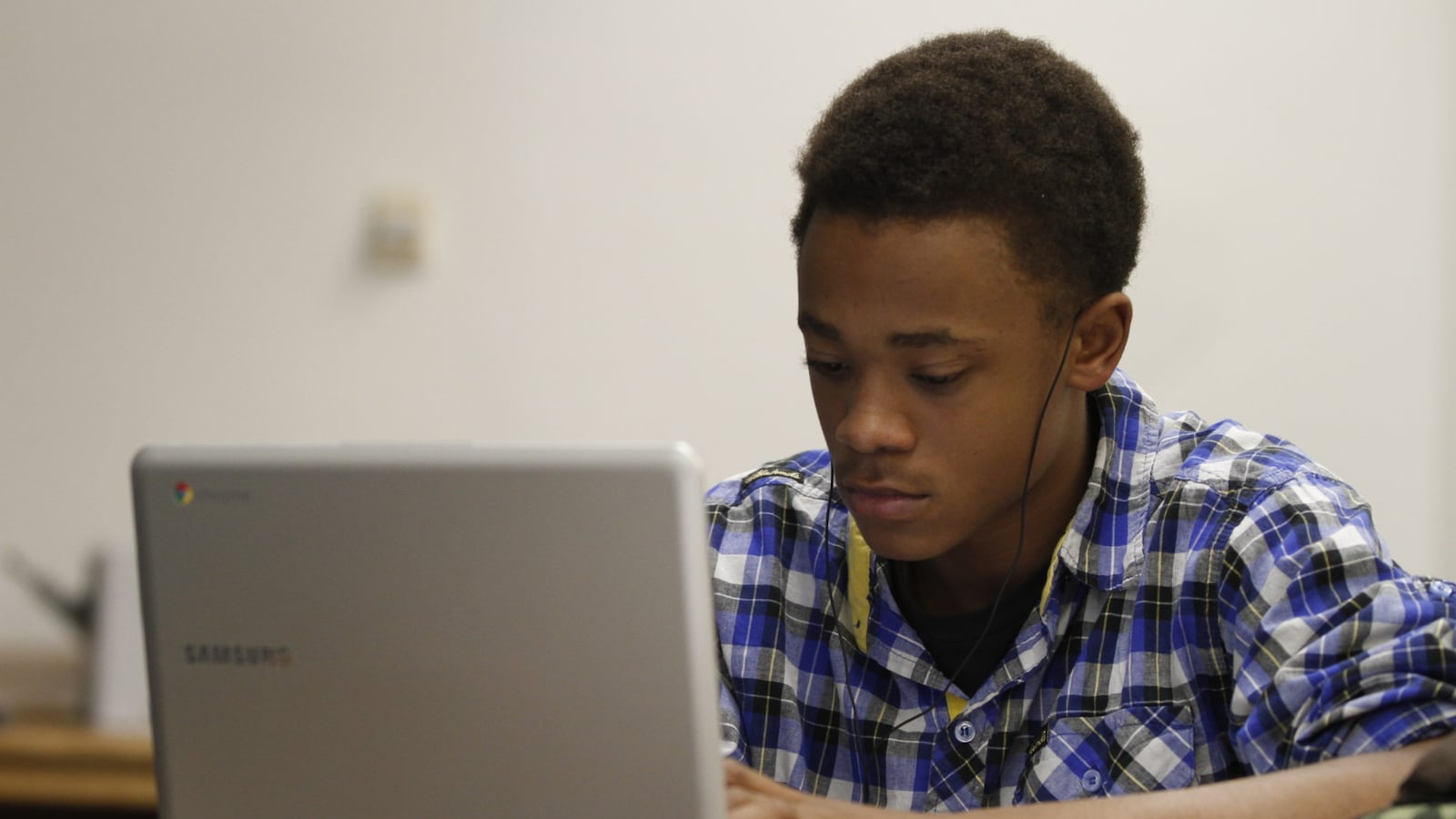“The most important thing that we focus on all year long is becoming better readers and writers,” I told my kids all year. “This test can show us how we’ve grown, and we should do our best on it because that’s what we do on anything we do: our best. We are ready.”

I mean what I say to my students. We were ready. Even after the crash of TNReady in 2016, my students and I entered this testing season confident.
The problem was, the test was not ready.
I want it to be ready. I want my students to be able to demonstrate what they’ve worked so hard to learn. I want them to feel pride in accomplishing the tasks before them. I want them to be excited to see their growth. I want to pore over those results myself and learn how I can better serve my students.
I want all the things that the Tennessee Department of Education says that it wants from TNReady. But what I do not want is a test that disrupts learning instead of measuring it.
I don’t want to build my students up for a test that doesn’t happen when and how we’ve prepared for it to happen. I do not want to rush my students into a computer lab and be sure they’re all prepared only to sit and wait for 20 minutes to log in, or to end up leaving the lab without testing because the system is down.
I don’t want to start another sentence in my classroom with, “I know we were supposed to test today, but …”
Ten minutes into an engaging lesson plan I’ve created on the fly because of canceled testing, I don’t want to stop and tell my students to get ready because Nextera, the testing system, is working again.
I don’t want to rush my kids through lunch because they have to hurry up and test so the next group can get in the lab.
I don’t want to tell them we have to push back our literature discussion groups because we’ve had to test for a week longer than planned — or that they can’t go to the library to check out books because the testing schedule simply makes it impossible.
I don’t want to stand in front of my students and tell them we’re going to try again even though most of them haven’t been able to submit their tests for the second time. Even though several of them have watched their test answers disappear. Even though we have all sat in the computer lab watching the “spinny ball of death” more than we’ve seen the green check mark that indicates success.
I don’t want to call the help desk for Nextera and hear, “Your estimated call time is more than 30 minutes” when there are 30 students sitting in a computer lab with “502 Gateway” error messages across their screens. I do not want to wonder why the review screen says “0 questions answered of 0 possible questions.” What does that even mean?
When three students try to submit their tests five different times but can’t because the system says they haven’t answered Question 29 even though they have, I don’t want to say again, “I don’t know, but don’t worry. We’ll fix it.” Will we?
I’m tired of reassuring my students that the test really is fixed this time. They don’t believe me. I don’t believe me.
I don’t want to see my students, sitting after the system has gone down, drawing cartoons of airplanes labeled “TNReady” crashing into mountains. I do not want to see them, when finished with their tests and waiting to submit them, typing extemporaneous essays about how TNReady has wasted their time.
I don’t want to overhear my students exchange guesses about the probability of whether the test will work today — as they walk to the lab to take a test that is supposed to reflect their learning and my teaching.
And I don’t want to try to find a delicate, non-manipulative way to try to communicate to students, “These results don’t count for your grades, our school, or our district, but they do count for me, so please try.”
I certainly don’t want to hear that the test my students took didn’t have anything to do with what they learned all year because, turns out, they took the test for a different grade. And I don’t want to read tweets and emails from the Tennessee Department of Education that treat these issues as regrettable but minor inconveniences.
I do not want to hear excuses or listen to anyone insist that these problems do not interfere with the validity of the results. I do not want these results factored into a number used to quantify my effect as a teacher.
But all of that has happened. I also understand that testing is federally mandated, and I agree that tests can provide important feedback. So here’s what I do want: A test that is reliable. A test that is developmentally appropriate in length and respectful of the instructional time students lose to testing. A test that provides timely and detailed data.
And I want my students to take that test, and for my colleagues and I to be held accountable for it, only once it’s actually, truly, ready.
Rachel Phillips is a seventh grade ELA teacher at Shafer Middle School in Gallatin, Tennessee.
About our First Person series:
First Person is where Chalkbeat features personal essays by educators, students, parents, and others trying to improve public education. Read our submission guidelines here.

